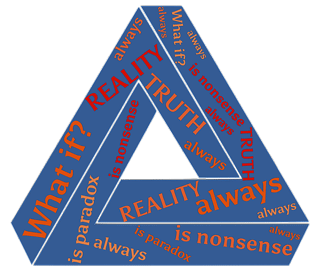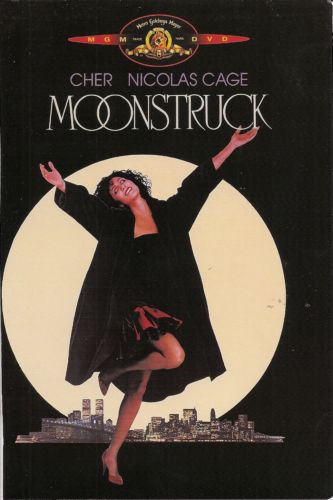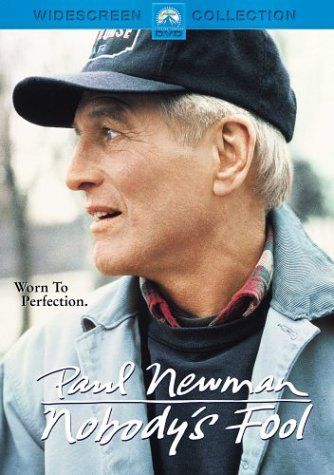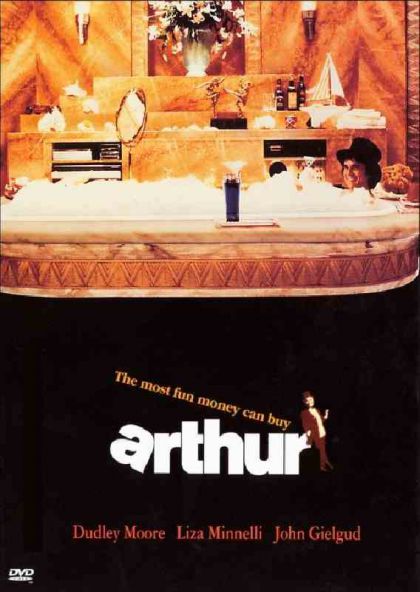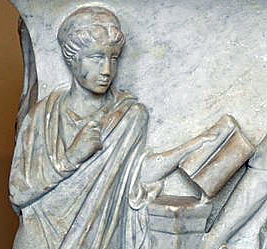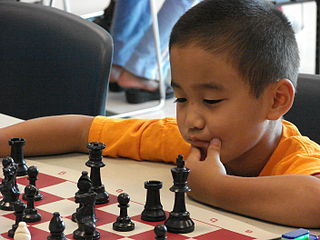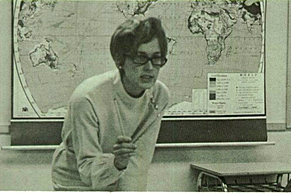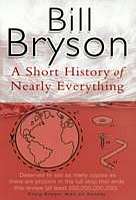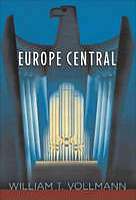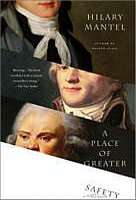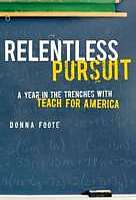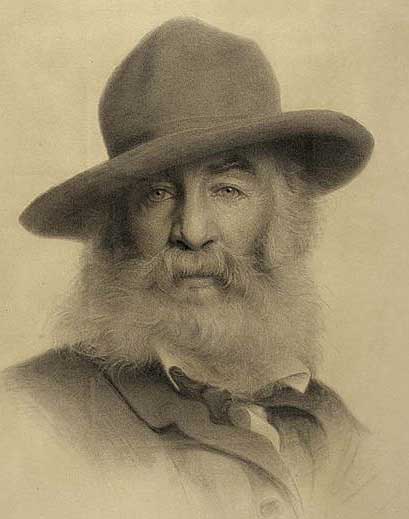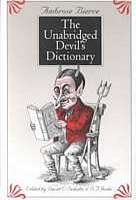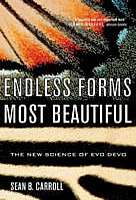 Genres
Genres
Absolute truth is a tough nut
Paul Abramson, an old friend, wrote a Defense of Creationism, or more specifically, a defense of Young Creationism, which posits that the universe was created around 6,000 years ago, based on a literal interpretation of the book of Genesis in the Old Testament. I read this article out of curiosity for Paul's take on it; Paul is the editor of a website dedicated to Young Creationism. In the endless churn over biological evolution, religious opponents often emphasize blind faith in an absolute view, while scientific advocates emphasize the skeptical application of the scientific method to mold necessarily incomplete theories. The Defense of Creationism is a good example of the former.The Genius of Apple
Steve Jobs recent demise brought out many encomiums having at least one thing in common: An agreement that he was a genius. Jobs' genius (a notoriously fickle word) would appear to be in the realm of practical design. His early Apple computer was easier to use and more accessible to its consumers than those of his early competitors, and that was true of most of the subsequent devices produced by Apple on his watch, including the Macintosh windowing and mouse-driven operating system, the seductively simple iPod, the iPhone marriage of mobile phones with a personal digital assistant and its deft employment of touch screen technology, and the iPad tablet offshoot.
Oregon loves New York: memories of 9/11
My wife Cindy and I awoke early on September 11, 2001 in Portland, Oregon. As I was preparing for work, she called me to the television, which had the smoking image of the first of the burning World Trade towers. We both stared in disbelief, and watched numbly as that terrible day unfolded, as the second tower was struck, as people began to jump from the buildings, after which one building and then the other crashed to the ground, so rapidly as to seem completely unreal. We watched as the Pentagon was struck, and followed the tense and fragmentary reporting as planes were grounded, fighter planes were scrambled, and frantic searches were being conducted to account for all of the airplanes in the air, culminating in the crash of flight 93 in a Pennsylvania field. We wondered what could possibly motivate someone to cause such horrific damage, to deliberately destroy so many innocent lives.Pocket Review, Title Moonstruck, Studio MGM/UA, Rating 5.0,
Moonstruck: A movie that never gets old
This is the Godfather without the criminals, an affectionately detailed slice of love-deranged Brooklyn Italian family life. It is such a happy, funny movie. The operatic theme of unexpected love is done to perfection here.
Pocket Review, Title Nobody's Fool, Studio Paramount Pictures, Rating 4.5,
Nobody’s Fool: A movie that never gets old
This is a story of an aging small town man with deep flaws, played superbly by Paul Newman, one who abandoned his family and has lived from hand to mouth. Yet he has built a life caring for his friends.
Pocket Review, Title Arthur, Studio Warner Bros., Rating 4.5,
Arthur: A movie that never gets old
When Arthur first came out, Dudley Moore's comic acting had already gotten my attention, but the premise seemed like it was built on a single joke, and I had no interest in seeing it. After some critical acclaim, I reluctantly joined the queue, and was amazed at what was conjured out of rich drunk guy jokes.
Evensong
Even as the evening comes,
All begin to home,
Some roundabout, wanting first
To wander in the gloam,
Some direct to open arms
Of lovers yet alone,
Each seeking friends and comfort
To ease their hearts to home.The art of writing? Just get started
I was talking to a friend about the difficulties of writing, and so gave some thought to my own writing process. I have often felt stymied in getting started writing, both in business, of which I did a large amount, or privately; I enjoy writing, and sometimes can write freely and fairly quickly, but the norm is that I struggle to start. My most usual technique is to write a set of scattered notes down, anything, and then revisit it and start shaping it. Most of my more serious “essays” started in one direction, and are in many ways unrecognizable when I am done, precisely because one idea or phrase begets another.The Internet Filter – thanks, TED
Today, through the most typical Internet feeds, you see highly filtered content, often unbeknownst to you. For those who rely on the Internet more and more for news, opinions, and various other information, as I do, this has the solopsistic effect of virtual navel-gazing, and perhaps as insidious, when you ask the self-same question as another person, each of you often see very different things! Eli Pariser, in a recent TED talk, points out that major Internet sites like Google, Facebook, Amazon, the Huffington Post, the Washington Post, to name a few, are performing more and more algorithmic filtering of what you see to tailor the results to your perceived liking.
Whitewashing the most peculiar institution:
a Lost CauseLeonard Pitts, one of my favorite columnists, just wrote about the persistent whitewashing of Confederate History in the old South, and pointed to the out and out lies that are being told about it. The biggest whopper, of course, is that the Civil War was not about slavery! Of course, the South was quite clear and unambiguous as to why they started a Civil War. In their own language justifying their secession from the Union, they described slavery as the primary reason for their treasonous behavior.
Virtual Choir 2.0: Eric Whitacre and 2,052 singers!
If you enjoy choral music, you won't regret spending five plus minutes listening to this lush rendition of Eric Whitacre's "Sleep", performed by over 2,000 singers! As in his first virtual choir performance, Eric collected individual parts recorded via webcam from all over the world, and combined them in a single video to produce amazing choral sound.
Here’s the Thing about equal rights
Herein lies a tale of history misunderstood, and then of history revived. It begins in Heidelberg, Germany in 1975. I was then a young soldier in the US Army, and with a fellow soldier, my friend Ted Withycombe, had taken a day trip to visit the storied university town of Heidelberg. While strolling along the Philosopher's Way, where students and professors had trod for hundreds of years, we chanced upon an unmanaged but well-trodden path that went up the hill towards the Heiligenberg, which other people were clambering up. There was no sign that described that path, nor could it be found on our map.
Chess tournament etiquette: Performance art?
Several chess writers have mentioned a German 'book' entitled Instructions to Spectators at Chess Tournaments, which was comprised of three hundred blank pages followed by the phrase "Shut Up!"
This piece of performance art (the performer is the reader of the book) brought to mind an experience my son Jon and I shared years ago at a chess tournament. Jon had an early interest in chess, and starting in the fourth grade, played in multiple chess tournaments, the only member of the Wiebe family to compete in chess, even if only for a few years. I took him to his last tournament, and joined the ranks of fussy parents watching their children anxiously from the sidelines. In his second game, after perhaps ten moves, I noticed that Jon had just placed his opponent in a discovered check situation. I was excited for him, because discovered check can be a lethal tactic . . .
Carole King’s Tapestry, still in my heart
Few who came of age in the 1970's are unfamiliar with the singer Carole King, and more specifically, her album Tapestry. It struck an immediate and widespread chord, so to speak, for many including myself; over the years, I have listened to it often, and it has never lost its appeal for me.
How to tell a story in 4 minutes, with no words
Good Vibrations from Helene Emain on Vimeo.
I stumbled across this wonderful animated short film; a lot happens in four minutes, and it is . . . fascinating. In four short minutes, a world is created, multiple characters are developed, and much happens, without any words!
You can’t go home again . . . to Husterhöh Kaserne
Thomas Wolfe's famous suggestion, "You can't go home again" covers a large amount of territory; your home is not the only thing to which you cannot return to with any but perfect verisimilitude. Recently I became curious about my old neighborhood in Pirmasens, Germany, where I was stationed as a soldier in the U.S. Army during the mid-70's. Through the magic of Google Earth and the Internet, I explored the place I once lived, now thirty five years hence.Memories of Ann Williams
I was sad to hear that Ann Williams died, and I extend my sympathies to her family. Ann Williams was my English teacher at Jackson High School during my Junior year. Miss Williams, as we knew her, was an involved and caring teacher. Her love of literature was apparent in her teaching. As a class, for example, she had us do a full reading of Macbeth, with assigned parts, which gave us all, the great majority of us with no dramatic experience, a serious exposure to the beauty of his language, a personal glimpse into the difficulties of "playing" a part, and for my part, contributed to a life-long appreciation of Shakespeare and of Shakespeare done well.How did we get ourselves into this terrible financial mess?
The Crisis of Credit Visualized from Jonathan Jarvis on Vimeo.
How did we get ourselves into this terrible financial mess?
What is science? Maybe not what you think it is . . .
"[Science is] an effective, rational instrument for discerning (tentatively, partially, but always more accurately) the facts of the world."
- Chet Raymo, Skeptics and True Believers, p. 166Unforgettable, complete Holocaust story
If you were looking for just one story that would give you some sense of the personal impact of the Holocaust on its victims, survivors and their families, this is it. Spiegelman's cartoon version of his father's life before, during and after the Holocaust, of which he was a survivor, provides a more direct, complete and highly visual means of telling the story. Maus draws you close, and with each panel, you feel the emotional impact of this terribly difficult and sad world.
Macroeconomics, the rap version
John Maynard Keynes and F. A. Hayek rap out their macroeconomic differences in Fear the Boom and Bust. This parody is funny, but is also a 'simple' primer on the extremes of our current economic choices.
Recasting the American Dream
Are we going in the right direction as a country? Do we have effective leaders? Are our goals, our American Dream, achievable? If not, what should they be?Taking fundamental science personally
Bryson has produced a brilliant exposition on fundamental science that is highly accessible and engrossing for any good reader. The author covers many topics of physics and astrophysics, including the origins of the universe, nuclear physics, and the origins and geological development of the earth.
Wandering Mennonites
The Blue Mountains of China is compelling and candid historical novel that tells the story of a set of Mennonite immigrations from the Ukraine SSR to Siberia, Canada, Paraguay, and briefly, China. The novel begins with a series of loosely connected chapters which move forward in time, and focus on i
Totalitarian Zeitgeist
William Vollman's Europe Central is a layered novel that provides various perspectives of World War II through the thoughts and activities of selected historical actors from Nazi Germany and the Soviet Union, including Käthe Kollwitz, Kurt Gerstein, Dmitri Shostakovich, General Paulus and General Vlasov, among others. Each character carries their particular tragedy forward within the context of the times and the two totalitarian regimes.
Storming the Bastille, then laundry
'Today we stormed the Bastille; I got there late; I heard it was bloody. Then I went home and had an argument with my mistress about the laundry. She spends too much time gossiping with the concierge. Hmmm, what's that I smell for dinner?'
Such parody is a little harsh, but it serves to underline the overall pedestrian nature of this historical novel; the author's subject deserved better. That subject is the French Revolution as seen through the eyes of three major characters: Desmoulins, Danton and Robespierre, two of whom were members of the decidely unsafe Committee for Public Safety, all three of whom were consumed via the guillotine in the most unsafe year of 1794.
Teach for America
Donna Foote's book Relentless Pursuit: A Year in the Trenches with Teach for America describes the controversial teacher program, following five of its young college graduates who immediately out of college and just after a short training stint, are teaching for the first time, and in failing inner city schools.
Cartesian dualism is driving me crazy
Cartesian dualism came up tonight while Cindy and I were talking, and I didn't understand it well enough to explain it, as is the norm with things philosophical.
So I chanced upon another three minute discussion of that very topic, a funny and clever and . . . short take on Descartes' thoughts about the mind and the body.
Descartes made easy
Philosophy is best consumed in three minutes or less, preferably in cartoon form. This is a hilarious and reasonably accurate take on Cartesian philosophy.
Plants talk, too!
As bacteria have been found to be chattering away with each other, it probably doesn't come as a surprise that plants talk, too. Stefano Mancuso, the founder of plant neurobiology (really!), studies plant signaling and communications.
It turns out that plants signal each other in several ways which help them to find nutrients, procreate and defend against predators. Ain't biology wondererful?
Once again, thank you, TED.
Parascience: Fair – or not
In the very first sentence (above) of this collection of essays, who's full title is Absence of Mind: The Dispelling of Inwardness from the Modern Myth of Self, Marilynne Robinson fires an immediate broadside as she sails the still uncharted territory of consciousness, or perhaps, the territory of charting consciousness. The title 'Absence of mind' appears at least a double entendre: The removal of the mystery of the mind by sloppy, imprecise parascience (a word Robinson uses more in the sense of scientism) and a poke at those who would arrogantly misuse the authority of science as being absent of mind.
I hear America singing
Should we be optimistic about the future of the American dream? There is no reason we should not be. Walt Whitman was optimistic about America, and his optimism was rooted in the potential for each American to realize their personal vision in a nation constructed to minimize tyranny; America is the land of the free.Today we are facing the consequences of a long-term corruption of the American dream; we have deeply indebted ourselves and our nation in the pursuit of individual material betterment and the maintenance of a global military presence. The corruption is both individual and collective, and the failures cut across ideologies, social classes, and leadership hierarchies. With all of our self-inflicted troubles, this is no time to despair, but to reflect, re-prioritize, and act.
Cynicism of the highest order
Ambrose Bierce is one of America's most celebrated cynics, along with Mark Twain and H. L. Mencken, and others too various to mention. His Devil's Dictionary provides ample dollops of irony, much of it directed seemingly at others while instead pointing directly at one's self.
Evo devo: where a little means a lot
Sean Carroll's overview of the new science of evolutionary developmental biology, or 'Evo Devo.', Endless Forms Most Beautiful, demonstrates new ways of testing Haeckel's old and discarded idea that 'ontogony begets phylogeny'. Evo Devo is bearing serious fruit; it would appear that a small number of genetic changes can produce very large, and species specific, changes, particularly those mutations occurring during an organism’s development or to the gene regulatory mechanisms of that organism; this is strong new support for the theory of evolution.
Unrequited feast
Glancing over neighboring fence,
at once in full view a family of deer ranging,
in sturdy grace, staring back with placid gazes:
Immediate joy!


 Politeness, n. The most acceptable hypocrisy.
Politeness, n. The most acceptable hypocrisy. READING
READING ARCHIVES
ARCHIVES CATEGORIES
CATEGORIES QUOTES
QUOTES